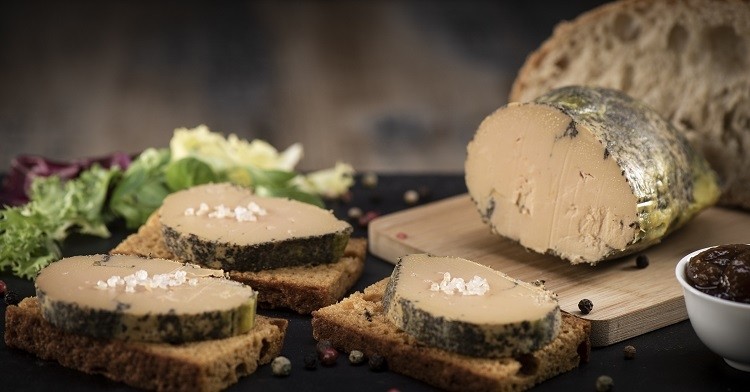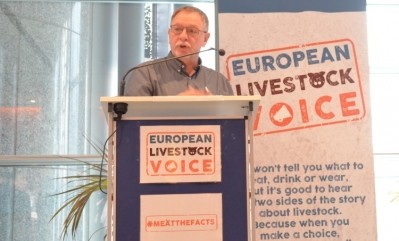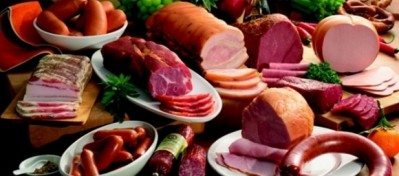‘Foie gras production is not cruel’: Resistance against proposed UK ban on foie gras imports

Earlier this month, the UK launched an action plan to improve the welfare and conservation of animals. The proposal is designed to ‘revolutionise’ their treatment, both in the UK and abroad.
The scheme includes formally recognising animals as sentient beings, ending the export of live animals for fattening and slaughter, and introducing new measures to improve welfare during transport.
Under the plan, the UK will also explore a ban on the sale of foie gras. The proposal has prompted concerns from the European Federation of Foie Gras (Euro Foie Gras): “Foie gras is a high-quality product which complies will all EU standards regarding animal health and welfare.
“The UK government should base its decision on scientific facts and field practice rather than on emotional opinions.”
Suffering-free production?
A well-known French delicacy consumed the world over, foie gras is made from the liver of a duck or goose. Its method of production is extremely controversial: to fatten the birds ahead of slaughter, they are force-fed with more food than they would naturally eat in the wild. This process is known as gavage.
Today, foie gras production is banned in a number of countries, including the Czech Republic, Finland, Italy, Poland, and Turkey. Production within Britain has been illegal since 2006, however the country continues to import it.
With the French specialty at risk of being removed from British tables for good, Euro Foie Gras – which represents the foie gras production chain, from breeders, hatcheries, producers, processors, and slaughterhouses – is ‘firmly condemning’ current projects to ban foie gras trade and imports.
“Foes gras production is not cruel,” according to the EU organisation. “The anatomical characteristics of ducks and geese cannot be compared to humans.”
Ducks and geese do not have a glottis – the slit-like opening on the floor of the pharynx that controls airflow in and out of the respiratory passages. Rather, they have an elastic oesophagus that can expand like a snake, noted EU Foie Gras.
As outlined by INRA’s Gérard Guy and Xavier Fernandez in 2013, as part of a study titled Impact on gavage on the welfare and state of play of the studies regarding alternatives to gavage, assisted feeding is fully adapted to the fat web-footed birds’ physiology. As the gavage is conducted by trained professionals, it does not cause any suffering to these animals, EU Foie Gras argues, “as confirmed by scientific studies”.
Gavage should be ‘consigned to the history books’
The EU organisation also stressed that European foie gras producers have gone beyond their legal obligations by adopting a European Charter on Breeding of Waterfowl for Foie Gras.
The charter aims to ensure a higher standard of animal welfare, by ensuring animals are comfortable when resting, have enough space to move freely, be free of disease, and able to express normal, non-harmful, social behaviours.
“Ensuring high quality living conditions is a daily concern for any breeders of fat palmipedes. Animals being bred are outdoors 90% of their life and free-range farming is the DNA of the foie gras production and prerequisite to obtain a quality product,” noted the organisation.
For Euro Foie Gras president Christophe Barrailh, the ban proposal ‘clearly shows a lack of understanding’ of the industry’s practices. “Has any UK policymaker ever been to a foie gras farm and seen the rearing conditions in practice? Euro Foie Gras is happy to invite them,” he added.
Farm animal welfare organisation Compassion in World Farming (CIWF) strongly disagrees with Euro Foie Gras’ position.
“Foie gras production is immensely cruel,” senior policy manager James West told FoodNavigator. “The force-feeding of ducks and geese entails horrific suffering and has no place in modern society.”
Unsurprisingly, therefore, CIWF is supportive of the UK’s proposal. “We are delighted that Defra [the Department for Environment, Food & Rural Affairs] appears set to ban the sale or import of foie gras in the UK and eagerly await the legislation that will consign this horrendous practice to the history book.”
‘A threat to consumers’ freedom’
Another reason that Euro Foie Gras is calling on the UK government to continue importing the French delicacy, is to ‘fully respect the freedom of choice of British consumers’.
According to the EU organisation, a ban of foie gras in the UK would threaten consumers’ freedom to choose what they want to purchase. “We believe that British citizens should be entitled to consume foie if they enjoy it.”
For CIWF, however, the ‘cruelness’ of foie gras production overrides the question of consumer choice.
“Some foods, such as foie gras, are so cruel in the way in which they are produced that there shouldn’t be a choice as to whether to eat them or not – they simply shouldn’t exist!” said West.



























